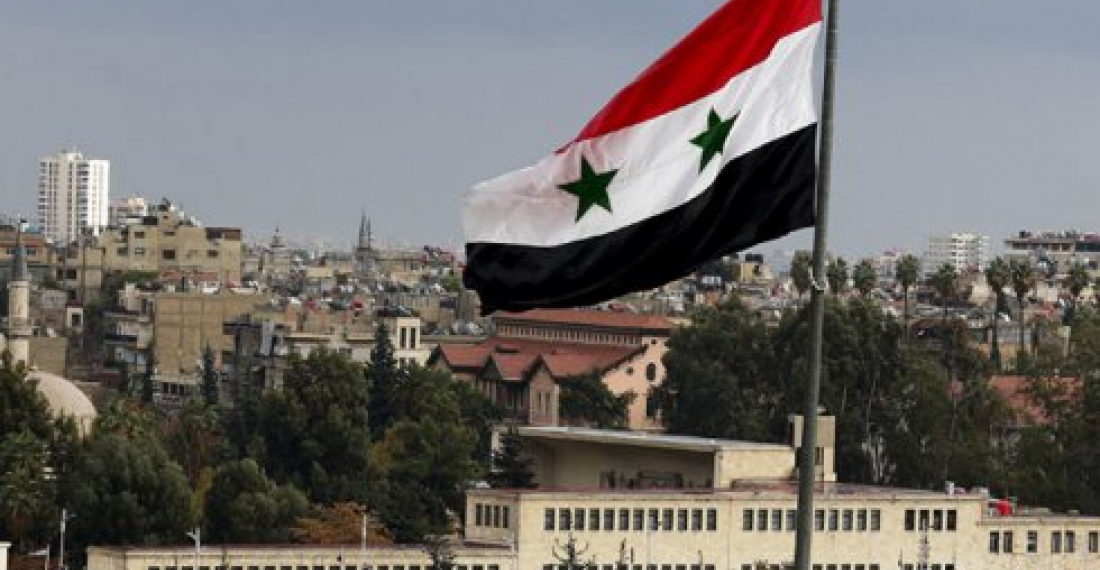Despite being a diplomatic achievement for the Syrian opposition, the Caesar Act offers only painfully narrow opportunities for progress in the peace process in Syria argues Noman Ahmed in this op-ed for commonspace.eu
The recently imposed sanctions on Syria under the Caesar Act garnered multiple responses regionally and internationally. The sanctions take coercive measures against the Syrian regime and its allies due to their involvement in war crimes since the start of the Syrian Civil War. The United States Congress, the initiators of the Caesar Act, had been reluctant in the past to take escalatory measures against the Syrian regime. However, in 2014, a Syrian fugitive under the pseudonym "Caesar" released pictures of torture by the Syrian government. "The Caesar Syria Civilian Protection Act 2019" imposes sanctions on the Syrian authorities, its institutions and any collaborators. The Act also urges the review and improvement of humanitarian assistance by international relief bodies. However, despite being a diplomatic achievement for the Syrian opposition, the Caesar Act offers only painful narrow opportunities for progress in the peace process in Syria.
After the adoption of the Caesar Act the Syrian economy quickly started to struggle from the anticipated sanctions. The Syrian Pound (lira) has weakened in value in the weeks since the Act came into force (see table below from The Money Convertor)

The Syrian regime loudly stated that US sanctions seek to "starve the people". The government encouraged its population to use local sources and to sustain their own food production in the light of fewer anticipated food supplies. Syria believes it can survive with support from its allies, notably after Russia and Iran offered to provide the necessary financial support. Syrian activists critical of the government have also pointed out that sanctions can have little effect on Syrian business magnates with close ties to the regime. In fact, they argued, the set of restrictions can negatively impact global reconstruction efforts in Syria.
Nonetheless, the United States hopes the sanctions will pressure the regime to change its position on various issues ranging from the economy, the return of refugees, ceasing violent attacks and the release of detainees. On its part, the Syrian regime is now trying to manipulate the Caesar Act into a political and diplomatic tool. The Syrian regime views many refugees as traitors and is not willing to release detainees under the pretext that they could rejoin radical and opposition movements. The United States can afford to wait until the Syrian regime budges under the pressure of the sanctions. On the other hand there is a risk the sanctions will exhaust the average Syrian, long before they impact the well-entrenched government elite.
History has shown that sanctions are often counterproductive. Sanctions on Iraq before 2003 and on Gaza on multiple occasions were not fruitful. Sanctions can also lead to reverse outcomes as anti-western sentiments can multiply. Syria can be no exception to Iraq, Iran or Palestine where anti-west sentiments grew as a result of political and economic sanctions. The United States is isolating the Syrian regime, but the success of the sanctions depends mainly on the United States' regional allies who will have to enforce the sanctions. In a region where political interests and identity politics influence decision making, the Caesar Act will likely create further polarisation instead of coercing the actors to a political resolution.
Amid what seems to be a largely political game, the Syrian regime is likely to endure. The sanctions seek to achieve a humanitarian and corrective goal. Still, the Syrian regime stands firm after the defeat of ISIS under a president who demonstrated an unwavering capacity for political survival against all the odds. The regime has already started and is likely to continue to blame the international community for the poor economic and humanitarian situation. In turn, the Caesar Act is expected to hurt Syrian society, while hardly denting a regime that keeps being bolstered by a regional network of allies spanning from Moscow to Tehran.
source: Noman Ahmed is Research Associate focusing on Europe's Neighbourhood South at LINKS Europe
photo: A Syrian flag flying over Damascus (archive picture)
The views expressed in opinion pieces and commentaries do not necessarily reflect the position of commonspace.eu or its partners






